The heartwarming documentary “A Pebble in the Pond” may seem like a simple celebration of good deeds, but it might just alter your core.
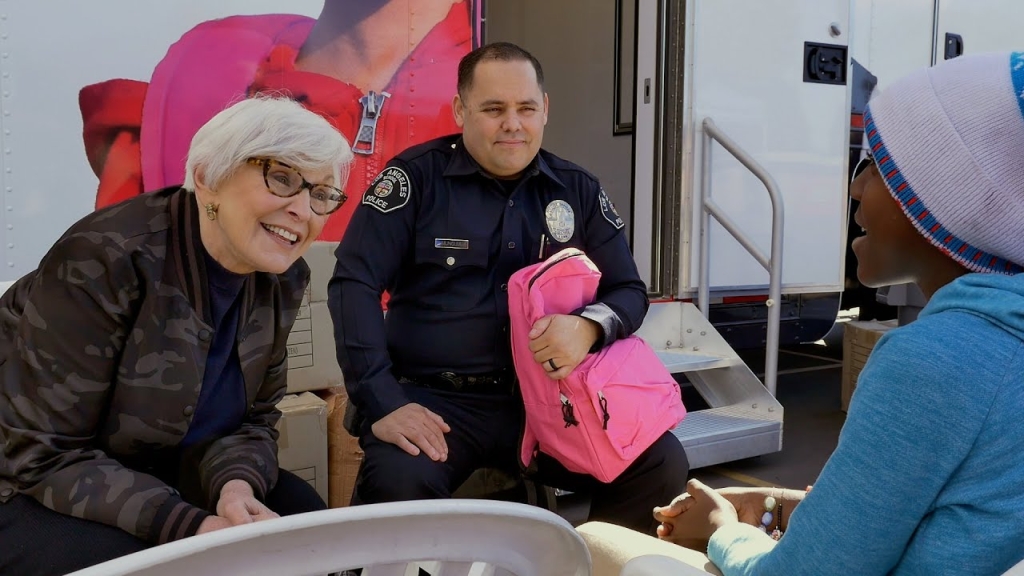
At first glance, A Pebble in the Pond might not sound like the kind of documentary you’d find particularly riveting. Billed as a feel-good story celebrating hope and humanity, it’s certainly not the type of film I’d typically consider reviewing for this site.
Without any real sizzle or sex appeal, it’s a quiet little film that isn’t unique enough, weird enough, or ostentatious enough to generate a ton of buzz. In fact, were it not for the filmmaker, Paul Howard, taking the time to reach out to me, I likely would have never discovered it.
And that would have been a tremendous loss.
While I typically cover much darker, stranger, scarier, or more downright depressing films, I sometimes crave a palate cleanser. There’s only so much horror — on screen and off — you can subject yourself to without beginning to feel mentally and emotionally out of alignment.
Honestly, however, it’s not the movies that affect me. The constant bombardment of real-life atrocities is what weighs heavy on my heart.
The 24-hour news cycle and the social media wasteland convince me we’re all doomed. I begin to believe there is no hope left for humanity, that evil has triumphed over good, and that things like empathy and kindness are dead.
It’s not true, of course. There’s as much beauty and grace in the world as there is abject horror.
But that fact is easy to forget when you’re inundated with what sells: man’s inhumanity to man.
As I mentioned before, A Pebble in the Pond is a simple film, but that doesn’t make it any less powerful.
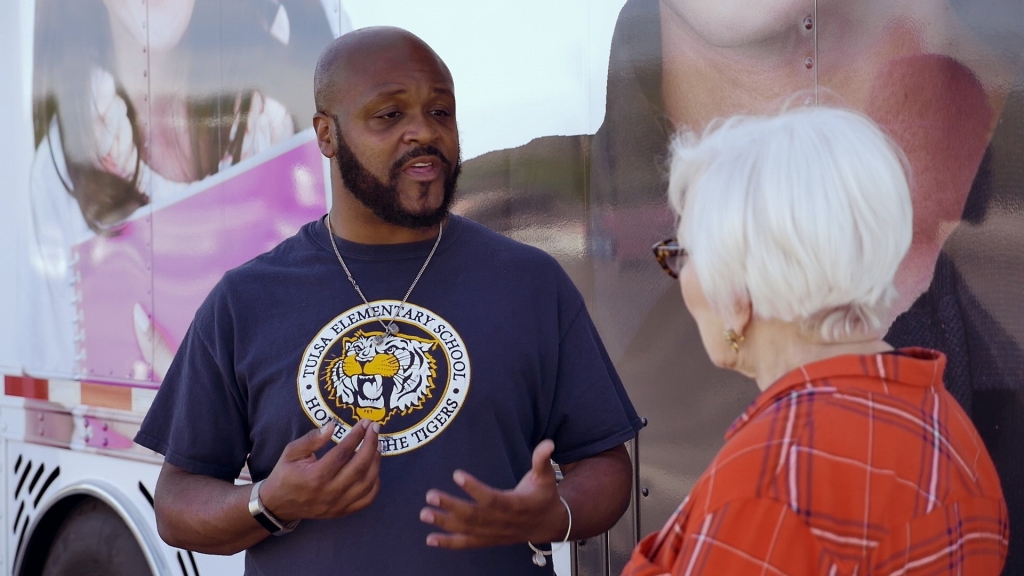
Howard, the man behind A Pebble in the Pond, isn’t just a filmmaker. He’s also an activist. And this film is part of his mission to be the change he wants to see in the world, to create ripples that touch lives and shape how we see and interact with the world.
This film is about the many caring, compassionate, and selfless people who devote their time and energy — and, in many cases, their lives — to changing the world, one person at a time.
That may sound too “touchy-feely, Kumbaya” to make watching much fun. But it’s surprisingly mesmerizing — primarily because it’s so damn joy-inducing and life-affirming.
It’s also inspiring as hell, especially during Women’s History Month, because this is a story about radical change being driven almost entirely by women.
We begin in Los Angeles, California, where a woman named Ann Benson greets us from Universal Studios, where she and director Howard are experiencing firsthand a charitable program called Operation School Bell.
Though the work being done by Operation School Bell is the film’s nucleus, it soon expands to be about the act of service on a much broader scale.
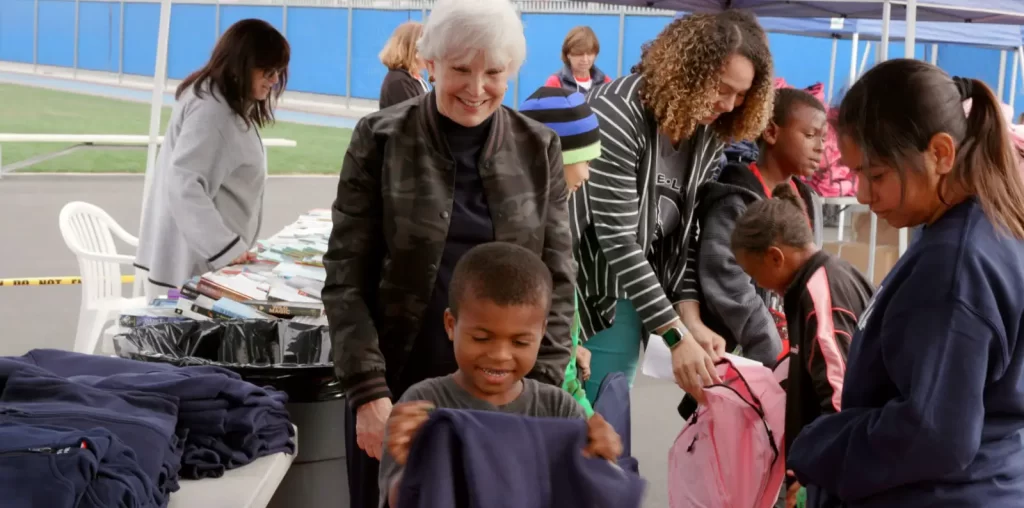
Ann, an actress working on a series of episodes for a show about helping people, serves as our “tour guide” throughout the documentary that centers around a volunteer-based organization dedicated to providing clothing, shoes, books, backpacks, toiletries, and other essentials to needy children of all ages.
She explains the impact of seeing hundreds of children lined up outside a trailer at the gates of Universal, waiting to get fitted for shoes by volunteer police offers before picking out new clothes for school.
Immediately moved by what she witnessed, she thought, “I have to be a part of this.”
One year later, she finds herself fully immersed in a culture of giving, joining a national organization known as the Assistance League, which runs Operation School Bell and numerous other support and outreach programs.
Much of the film consists of candid interviews with other volunteers and those whose lives have been impacted by the generosity of others.
Interspersed with these uplifting and often emotional stories is an animated retelling of the organization’s genesis and rising influence over the years.
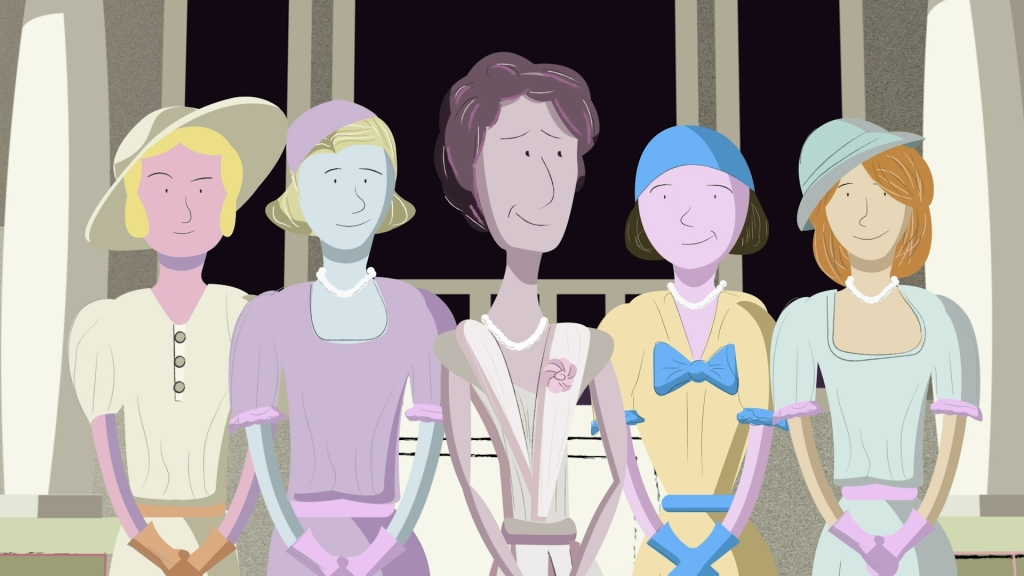
It all began in the 1890s with a woman named Anne Banning.
Despite being a wealthy socialite, Anne yearned to do something meaningful with her life of leisure, giving back to those less fortunate. She recruited other women of privilege to perform local charitable work focused on children.
Following the devastating San Francisco earthquake and subsequent fires of 1906, Anne expanded her efforts and reach, forming the Assistance League. She spurred many other women into action — women who didn’t even have the right to vote but found the courage, tenacity, and ingenuity to make world-changing innovations.
The organization continued its important volunteer activities through World War I, working closely with the Red Cross, and founded its first chapter in 1919. Banning was also largely responsible for the creation of the charity shop.
Still going strong over 125 years later, the organization created by Banning now consists of 120 national chapters dedicated to helping those less fortunate across the United States.
And it’s so much more than just the organization’s flagship program, Operation School Bell (the brainchild of another inspiring woman, Ruth Anne Montgomery), that now helps millions of children nationwide.
The Assistance League boasts an extensive menu of charitable programs — offering everything from much-needed assistance to victims of sexual or domestic abuse, low-cost orthodontics to children who can’t qualify through their state insurance coverage, a literacy program, a puppet workshop for young children, a prom program to provide dresses for homeless teen girls, a multilingual pre-school, and much more.
Though the format is familiar, this achingly beautiful documentary feels anything but basic.

We meet kids with nothing who have hope for the future, thanks to work being done through this organization.
We meet volunteers who were once program recipients and are now in a position to give back. We meet police officers determined to show the community another side of law enforcement and what compassionate policing can look like.
It’s far more than a simple feel-good human-interest story.
Though it runs one hour and forty-five minutes, it moves briskly and effortlessly holds your attention throughout with riveting stories about the incredible women who run the Assistance League.
A Pebble in the Pond isn’t just interviews and historical retellings. There’s more showing than telling, and we get to see, up close and personal, the impact of the good these volunteers are doing. We see the real-time outpouring of emotions, joy, comfort, and overwhelming gratitude for the help that’s so lovingly provided.
Service is about sacrifice, but A Pebble in the Pond will convince you wholly that those who give are the ones who truly receive.
At no point does the phenomenal outpouring of generosity feel like a burden on the volunteers. In fact, you’ll likely walk away feeling a bit envious of the life-changing experiences shared again and again throughout this film.
If this movie doesn’t make you want to do something meaningful and positive in this often cruel, unjust, and downright terrifying world, nothing will.
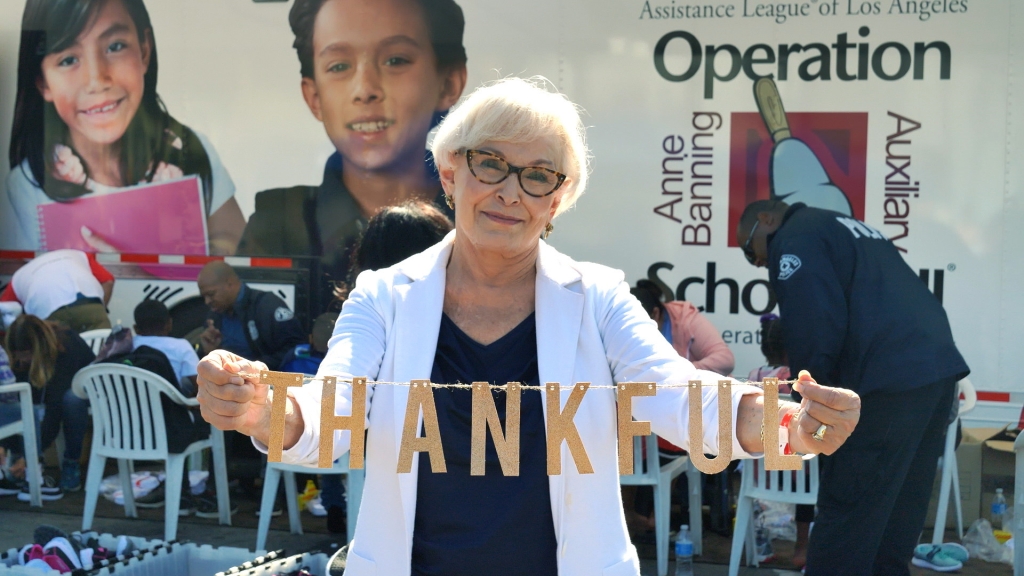
If you feel beaten down and discouraged by what seems like an endless barrage of bad news and examples of people putting greed and the quest for power above human lives, I beg you to watch A Pebble in the Pond.
Sometimes, we all need a potent reminder that there is so much potential for greatness in the human spirit.
This film is also a much-needed reminder that one person can make a difference, or, as Howard explains, “in a still pond, even the smallest pebble can create huge and far-reaching ripples.”
We see how something as seemingly small as giving a child in need a new pair of shoes or a backpack can give them the courage to keep going, the strength to fight insurmountable odds, and the hope that things can get better.
This simple act of kindness lets them know that there are people who care. There are people who see and appreciate their worth, which can make all the difference.
More than once, I teared up watching this film, and not because I felt like my emotions were being intentionally manipulated. Every person we encounter in this documentary speaks with such sincerity and passion, and it’s impossible not to be swept up in the tide of human connection and the power of community.
A Pebble in the Pond shows that one man — or woman — can forever change the world.
I’m grateful for the opportunity to have experienced it, and I hope more people will find their way to this remarkable film and to helping make this big, bad world a little less scary for someone in need.


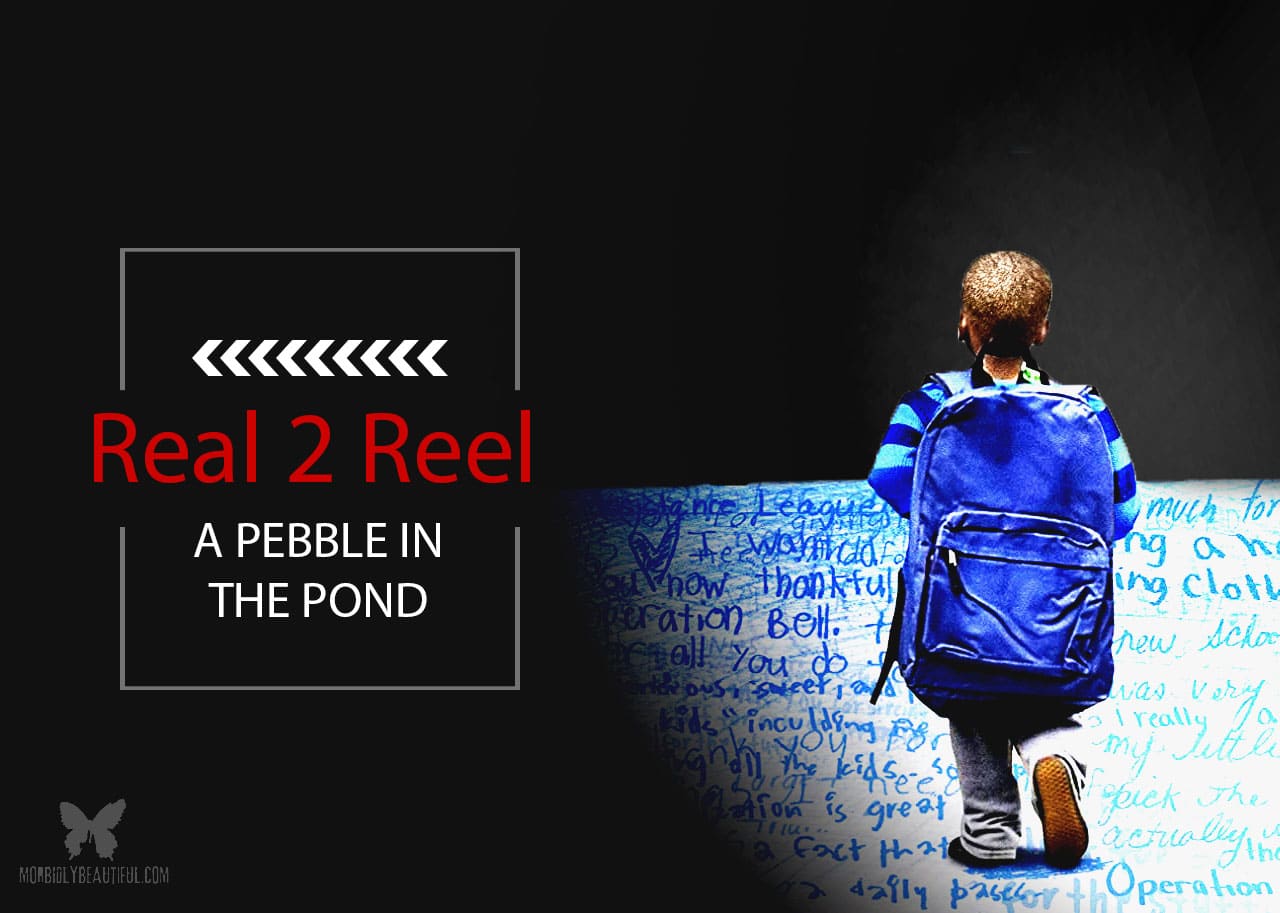
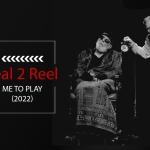










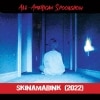
Follow Us!